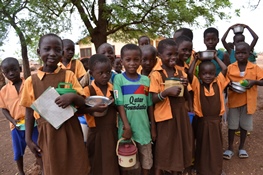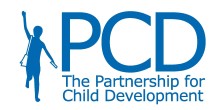There are no translations available.
Home Grown School Feeding (HGSF) aims to deliver government-led, cost-effective school feeding programmes using food that is locally grown by smallholder farmers. These interventions have been described as a win-win for children and farmers alike, with aims to:
- tackle hunger and improve nutrition;
- increase children’s access, participation and achievement in school;
- and support local livelihoods.
HGSF is therefore one response for different sectors from health, education and agriculture, to join-up their work to achieve positive combined results.
Benefits for farmers, suppliers and caterers

There are approximately 500 million smallholder farmers in the world, who grow the majority of food in low- and middle-income countries, including 80% of food consumed in Asia and sub-Saharan Africa. By linking these farmers, many of whom have children in school, to the school market secures them of a regular, reliable income. HGSF also promotes livelihoods for others involved in the school feeding supply chain such as school caterers whe prepare and hand out the food to children and those who help in its transport to schools.
Benefits to schoolchildren
School feeding is wideley recognised for its multiple benefits for schoolchildren, particularly in low and middle income countries. Evidence shows that children are more likely to stay, attend and be able to learn through the provision of school meals.
 Recent research in particular has also highlighted the value of these programmes for the most vulnerable children, with their benefits particularly impacting girls and other excluded groups.
Recent research in particular has also highlighted the value of these programmes for the most vulnerable children, with their benefits particularly impacting girls and other excluded groups.
Both the African Union’s (AU) Comprehensive Africa Agricultural Development Programme (CAADP) and the United Nations’ Committee on World Food Security have endorsed HGSF as a social protection mechanism that supports smallholder farmers and contributes to food security efforts.
The current situation
Today at least 20 African countries implement HGSF programmes, ranging from government programmes that are partially supported by development partners to fully government-funded programmes. The transition from programmes that still require external support to those that are fully owned by national governments is a key objective of HGSF.
Partnership for Child Development’s role
Since 2009, Imperial College London’s Partnership for Child Development has used its operational research expertise to deliver technical assistance to governments for the sustainable and effective implementation of HGSF programmes in:
